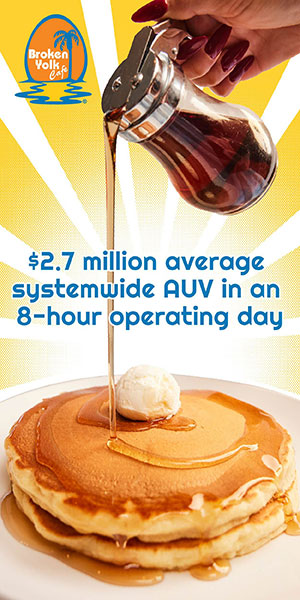The Shifting Nature of Give and Take

Give and take are often straightforward in the beginning of the franchisee/franchisor relationship. For a fee, a franchisee buys the right to implement a proven system. The franchisor provides support, and the franchisee works the business as instructed.
"That's the reason why you checked the box and became a franchisee, isn't it?" says Michigan-based David Plait, a veteran franchisee with Hungry Howie's. "You bought a successful system."
If the partnership doesn't work in the early stage, that's often a failure of due diligence on the franchisee's part. Before signing on the dotted line, it's important to research the brand to make sure its current franchisees are happy. Is the technology up to date? And, most importantly, does the franchisor have an open-door policy, making two-way communication possible?
"If you make the decision to get involved with X franchise, but you don't follow the franchisor's proven business path and business model, why did you make the investment in the first place?" Plait says. "You made the investment because you were looking for a system that was proven to be successful, the ROI was acceptable, and the workload fit within your lifestyle."
The only choice is to work plan, but the give and take can become more complicated after a franchisee gains experience. For instance, if the franchisor becomes stale and fails to innovate, a crossroads will appear, and franchisees will need to make a choice.
"Once you've been around for that six, seven, 10 years, you know the system," Plait says. "You realize what the ROI truly was and now is. The potential or lack thereof is clear."
If you're unhappy, perform a self-examination. You know the challenges and the ebbs and flows of the business. Then take a snapshot and ask, "Does the franchise itself look the same?"
If business is booming, it won't be a difficult choice to stick with it.
However, Plait says that he has seen franchisors change direction and how they work with franchisees. For instance, some franchisors are trying to become attractive to private equity, which might mean the brand isn't as responsive to franchisees as it once was.
In addition, some FDDs include the need for store updates and sensible capital investments. However, there are brands that don't include such requirements in the franchise agreement but still expect franchisees to carry out capitalization regardless of a sensible ROI.
"If unit economics become unacceptable, it doesn't matter what the business model is. When you start taking a look at your balance sheet, your cash flow, and ROI, it becomes very clear whether or not you can replace that cash flow by selling your business and trying something different. Can you sell your business and realize an acceptable ROI by simply investing in the market?" Plait says. "If you feel as if the franchisor is stuck in the mud or the business model has not evolved or the balance sheet is not equal to what it was when you first started, it might be time to make a change."
The goal, Plait says, is to work with a franchisor that values two-way communication. A large system might not be able to hear from all 1,500 franchisees, but a robust franchisee advisory council means ideas can bubble up from the bottom as well as trickle down from the top. The result can be a vibrant system that's constantly evolving to meet customer demands.
"If the communication line doesn't exist from the franchisor to the franchisee, the trust is compromised," Plait says. "I've seen business models where this door wasn't opened. It compromised the relationship."
In the end, a franchisee has to be realistic with bottom-line expectations. The franchisor must recognize when the franchisee needs assistance or when modifications to the business model are essential. It comes down to unit economics once again.
"The real question is this: 'Is the franchisor reporting to the franchisee as if they're a shareholder?'" Plait says. "What does that mean? Are they responsive to the franchisee? Do they see the franchisee's success as their own?"
Share this Feature
Recommended Reading:
| ADVERTISE | SPONSORED CONTENT |
FRANCHISE TOPICS
- Multi-Unit Franchising
- Get Started in Franchising
- Franchise Growth
- Franchise Operations
- Open New Units
- Franchise Leadership
- Franchise Marketing
- Technology
- Franchise Law
- Franchise Awards
- Franchise Rankings
- Franchise Trends
- Franchise Development
- Featured Franchise Stories
| ADVERTISE | SPONSORED CONTENT |

$750,000
$400,000





 The multi-unit franchise opportunities listed above are not related to or endorsed by Multi-Unit Franchisee or Franchise Update Media Group. We are not engaged in, supporting, or endorsing any specific franchise, business opportunity, company or individual. No statement in this site is to be construed as a recommendation. We encourage prospective franchise buyers to perform extensive due diligence when considering a franchise opportunity.
The multi-unit franchise opportunities listed above are not related to or endorsed by Multi-Unit Franchisee or Franchise Update Media Group. We are not engaged in, supporting, or endorsing any specific franchise, business opportunity, company or individual. No statement in this site is to be construed as a recommendation. We encourage prospective franchise buyers to perform extensive due diligence when considering a franchise opportunity.